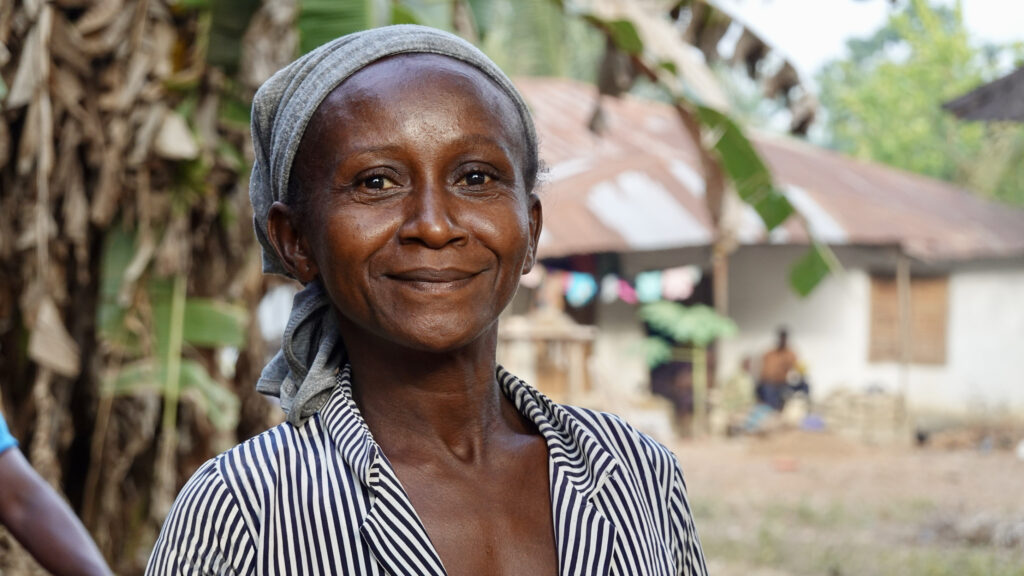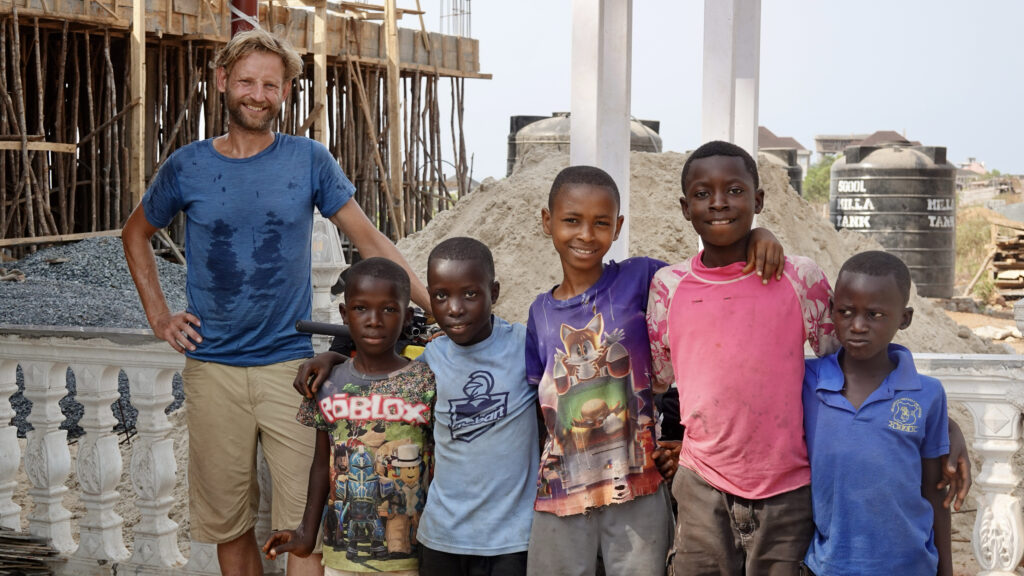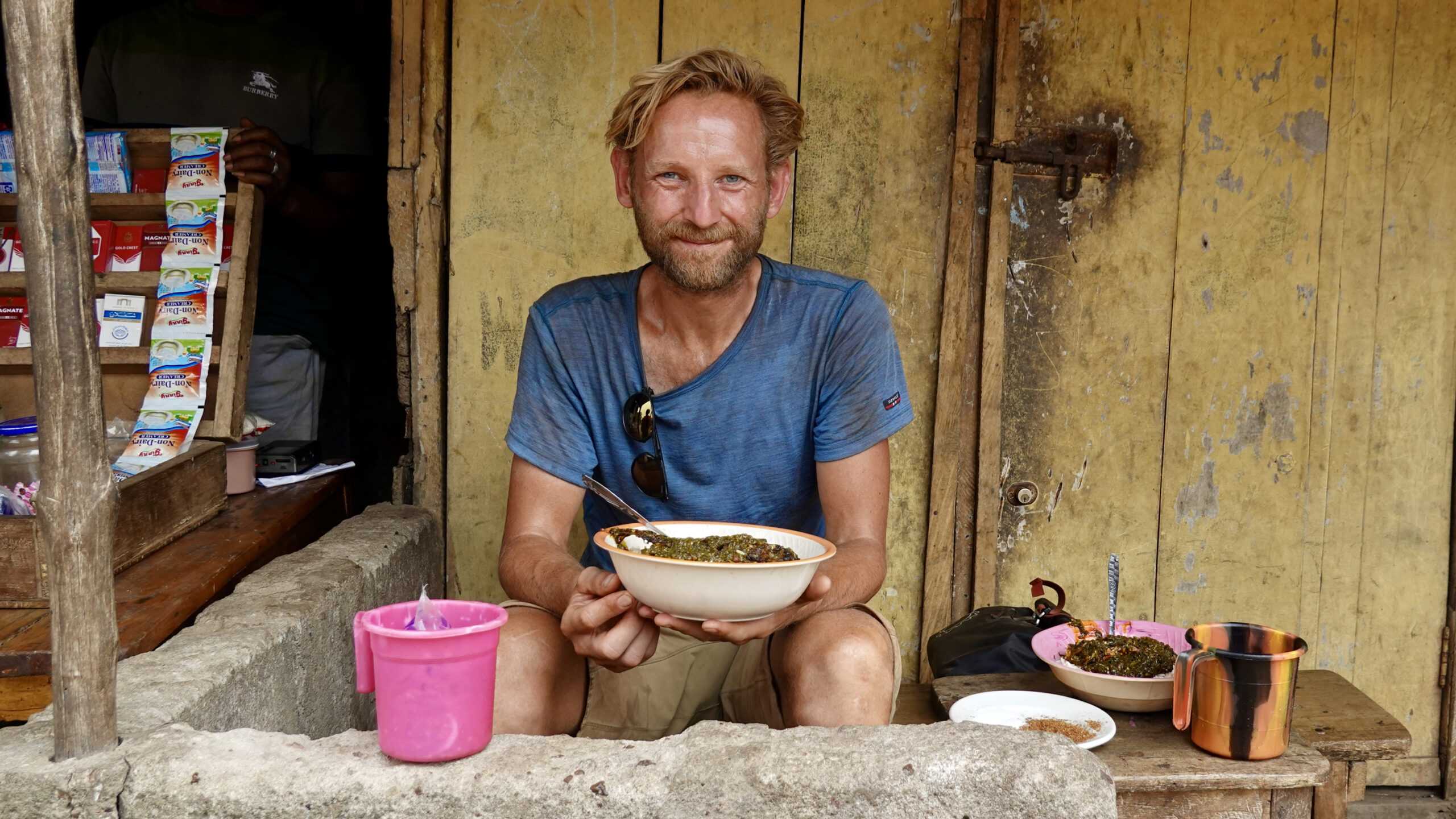Sierra Leone is living proof that the people of West Africa are resilient. We find it difficult to understand how the population of a country that has been through so much and is so challenged can be so welcoming and curious about who the two crazies on bicycles are. Inflation is high and life is difficult for many. We are asked for money from people on the street and from school teachers. Still, we are mostly greeted with a smile and a 'You are welcome'. It is so liberating when we say: 'We have cycled from Norway' and the response is: 'Noooooo way!' followed by a sound which is completely impossible to reproduce. It must be experienced. There is a creativity, humor and a vibe in people that is completely unique.
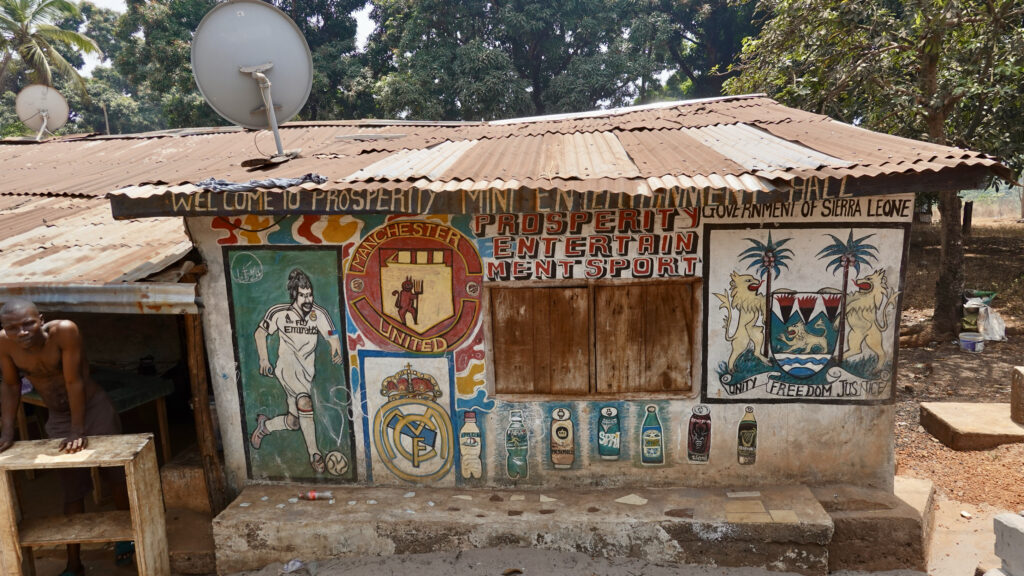
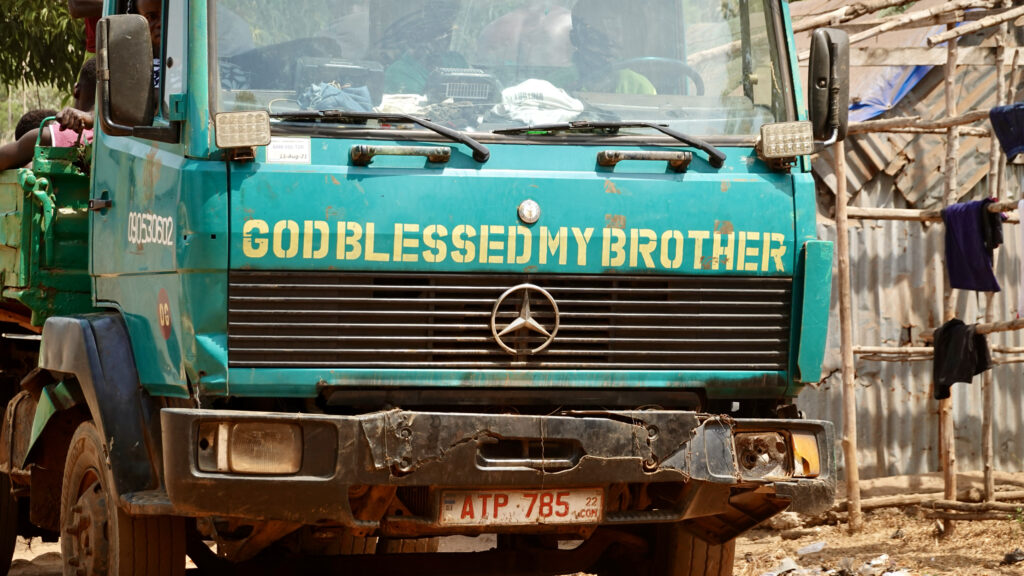
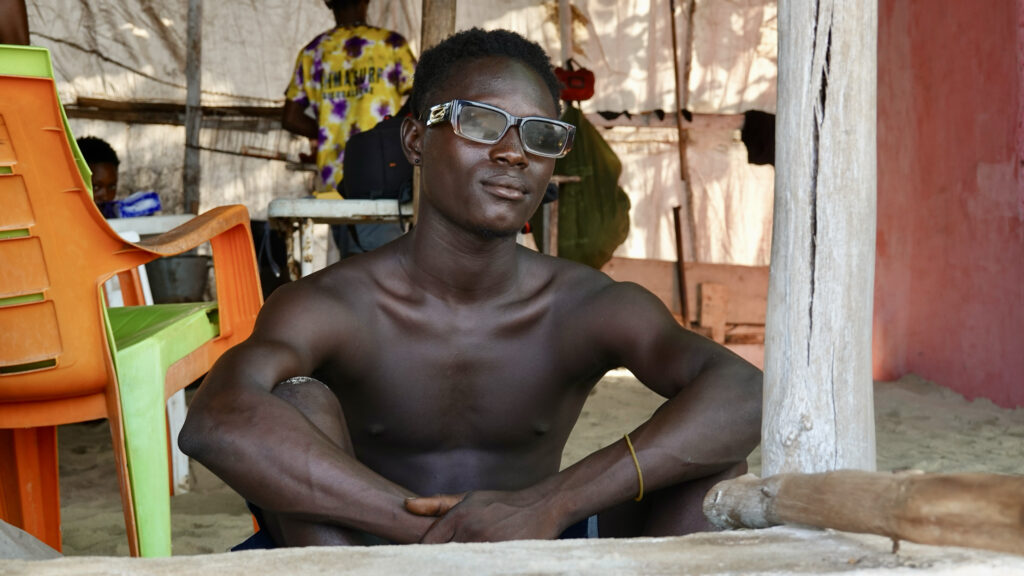
The meeting with Ishmael Baeh
We wake up to a loud noise, and we quickly sit up in the tent. Marie says: 'That's it now!' Get out of the tent in a hurry and move it up onto a concrete platform. The tide has broken through a sandbank, and we only manage to move the tent before the waves wash over the place where it stood.
The tide is unusually violent, and the water keeps washing over the beach, knocking over the large umbrellas made of dried palm branches. The owners run around to save tables and chairs.
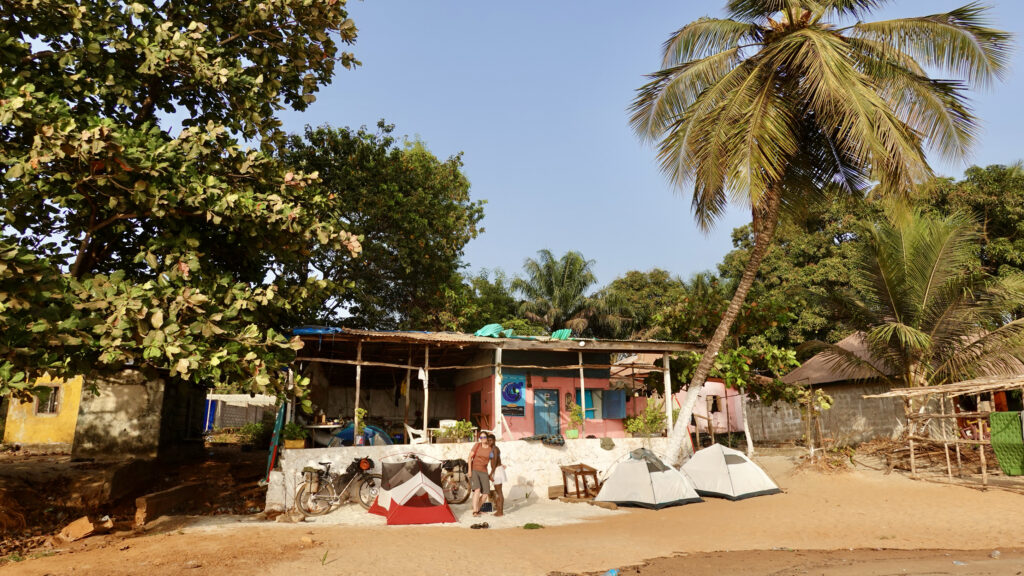
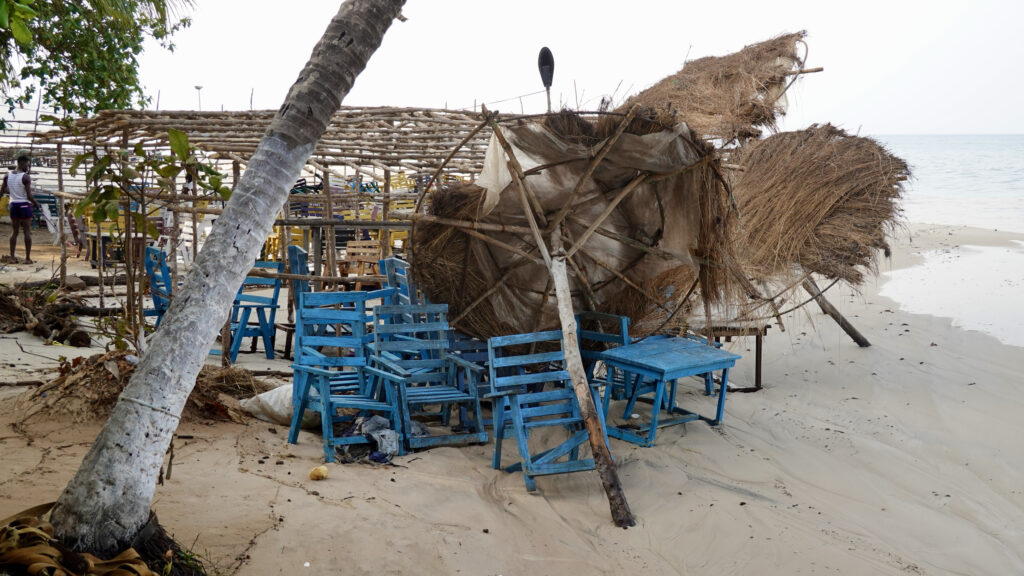
A small group of people arrive and they start by setting up to film. We can guess that it is the woman who is the director and that she has her husband and three children with her. Another woman comes out with a pink surfboard and they start filming various scenes.
We strike up a conversation with the man called Ishmael. He is a very pleasant man and the conversation really interesting. We are talking about how they dig out sand from the beaches, which causes these unnatural violent high water situations to occur. How there is a lot of rubbish in the sea, which washes up on the beach with the waves. How they prune the trees in Freetown so the wealthy can see the sea. This means that it rains a lot more in Freetown because it gets so hot. Ishmael says that when he speaks out against tree felling and sand extraction, he is told that he has been away too long. He has, among other things, lived in New York, Mauritania and Mexico. We talk about how important it is to travel and understand how others live.
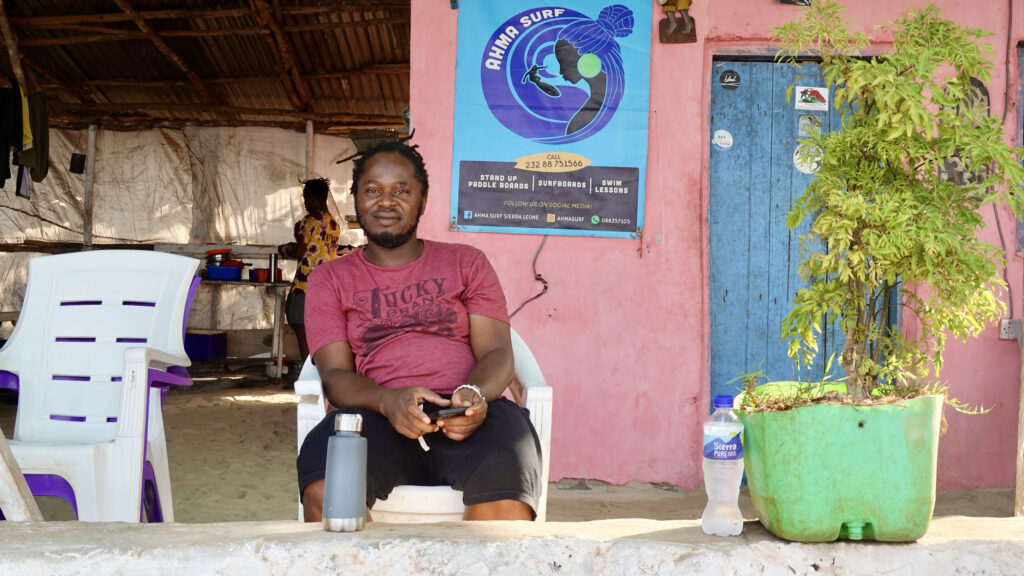
We find out that Ishmael is a writer and that he has visited Denmark and also published his first book in Danish: The long walk. We only later find out that he is a former child soldier in Sierra Leone's civil war, which started in 1991. A terrible war in which the last peacekeeping forces only left the country in 2005. Tens of thousands of people died and approx. 2. million were displaced.
Ishmael's parents and two brothers were killed, and at the age of 13 he was kidnapped to fight in the war as a child soldier. They were dressed in clothes with amulets and thought that then the opponents could not see them. In addition, they were smoked with marijuana. After two years, Ishmael was rescued by UNICEF and later came to the United States, where he received his education.
Kenneth ends up asking Ishmael what it will take for the people's lives to improve in Sierra Leone? Ishmael promptly replies: 'Visionary leaders'. It totally resonates with what we've heard before. Elisabeth from Tanzania said the same when we asked her why things are going well for some countries in Africa and the opposite for others. It is one of the topics that we spend a lot of time talking about with those we meet and with each other. What will it take for the countries to get out of extreme poverty?
Sierra Leone has gold, diamonds and other natural resources that have both helped but also cursed the country. The country had the fastest growing economy in West Africa in 2013. Progress was marred by Ebola and a metal crisis, so Sierra Leone's economy turned into one of the most declining economies in 2015. In 2019, over 2 million people were malnourished. In 2022 the economy once again declined and Inflation rose from 12% in 2021 to 27% in 2022 and in 2023 to 42%. About 81% of all households have difficulty feeding the family. Poverty and desperation is definitely something we feel when we travel in the country.
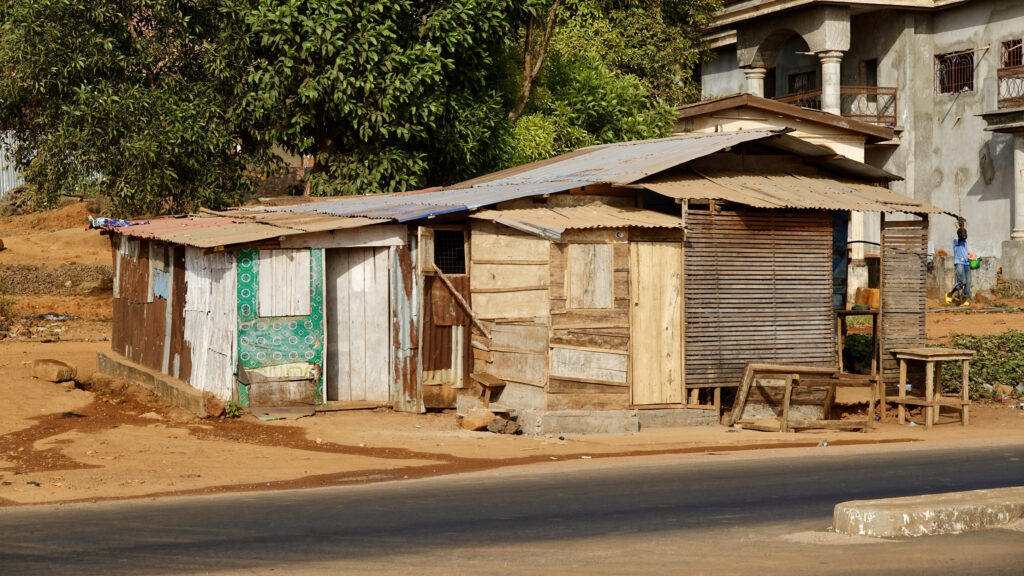
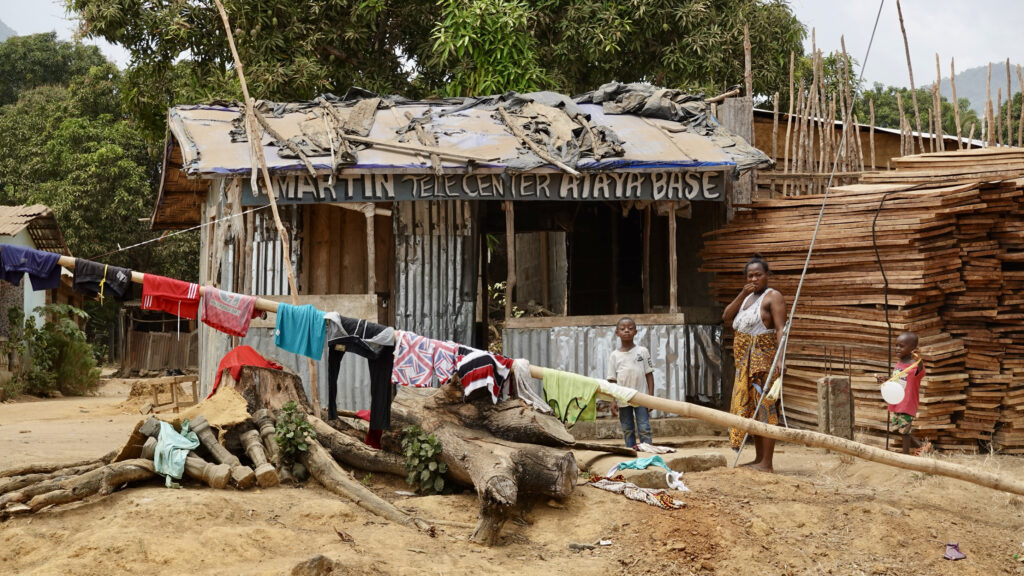
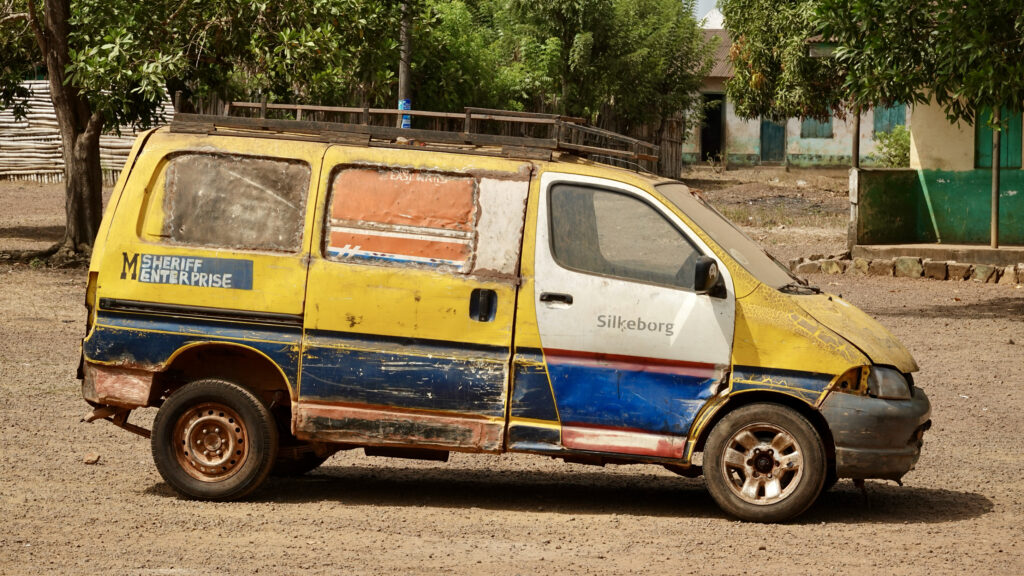
We are stopped by people who ask for money. We ask three young guys on a dusty country road what they will use the money for. They reply that they were hungry, that they cannot get a job and that the government does nothing for them. The same at a school where two teachers very insistently want us to help expand the school in order to keep the older students in school. The school was built by an American and the teachers' salaries paid by the government. A poor salary that in no way keeps up with inflation, as they say.
Although we would like to help, we cannot, and it is frightening that the population has more faith in travelers than in their own government. The arrow points back to Ishmael's statement that the country needs visionary leaders who can create better conditions for its people instead of lining their own pockets.
Conversely, we also find that if we enter into a conversation with the people who ask for money, the question of money disappears. Maybe sometimes it's also about being seen and heard. This is of course a hypothesis on our part, but we find that the more we talk to people, the less we are asked about money.
Freetown – freedom and decay
We are in Sierra Leone on Women's Day, which is a public holiday. Marie immediately thinks it's absolutely fantastic, but Anne, with whom we live, takes it more calmly: 'They need it', she says.
Anne is a Belgian woman who lost her heart to Africa in her youth. She is married to a man from Mali, with whom she has three children. Anne has lived in Mali for 12 years, but had to move because of the challenges in the country. She has lived in Sierra Leone for five years, and during that time it has only gone downhill for the economy, she says with a slightly resigned voice. On the other hand, her eyes light up brightly when she talks about the Africans and the continent.
Kenneth's niece, Andrea, has had a project about Sierra Leone at school, so we get some good tips on what to see. We cycle towards Sierra Leone's iconic cotton tree, which stands in a roundabout in the city. It is Freetown's best-known landmark, as it played a key role as free American slaves rested in its shadow after they came to the city in 1787 to make a new life.
We visit the tree and, quite ironically, it may still be a symbol of the city. The root is huge, but the tree has almost died out and only a single branch is green. The tree is wrapped in advertising and homeless people now live under the tree instead of the strong settlers who were supposed to create the foundations for the city.
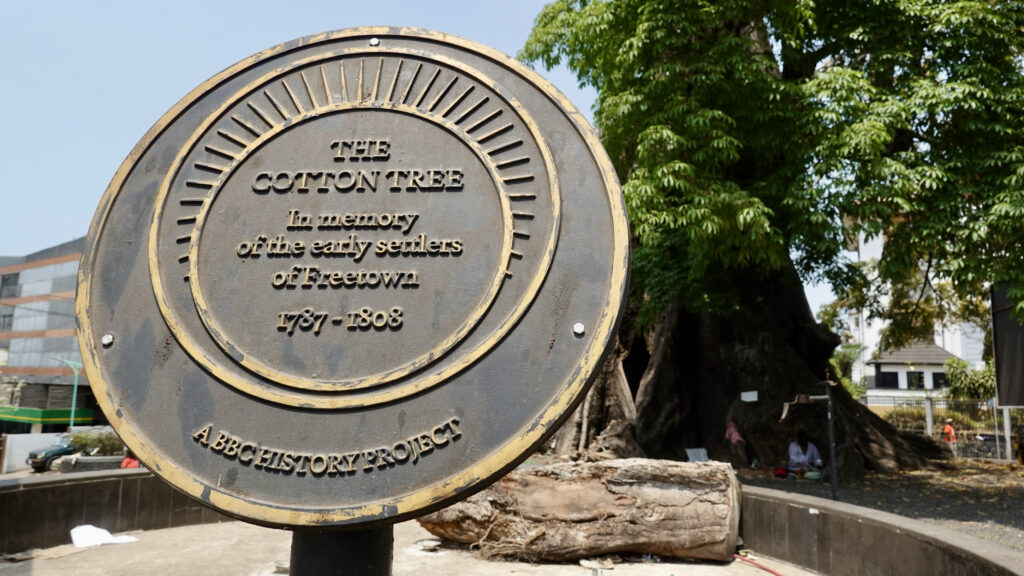
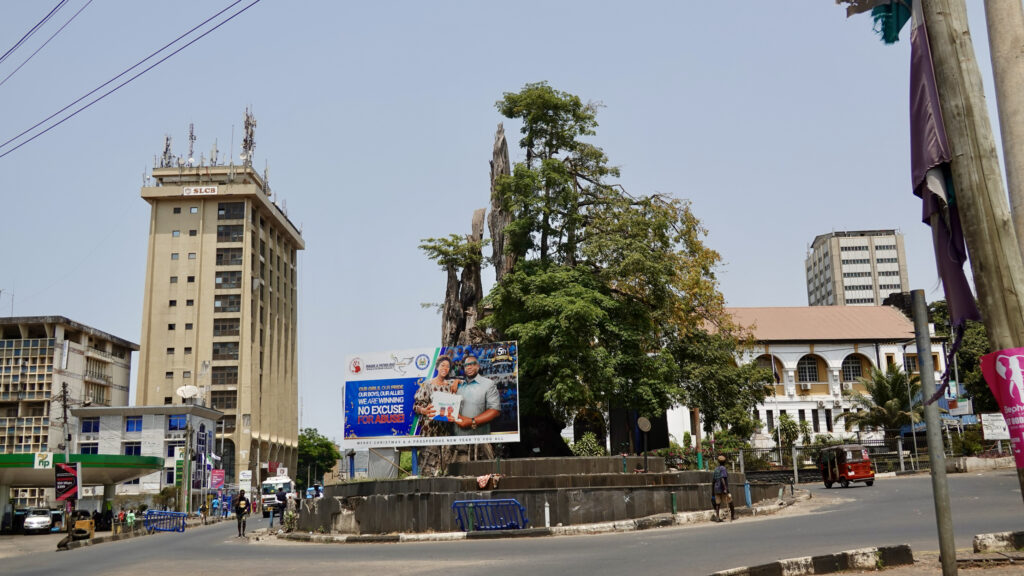
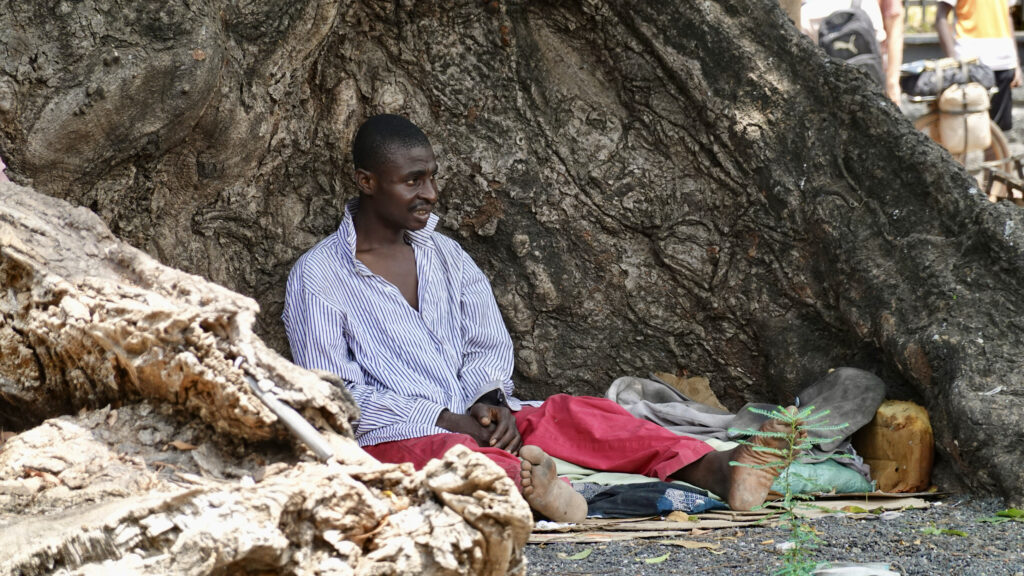
The rivers are full of garbage, but the locals still bathe in the river. Kenneth at one point hears a big splash, and a little boy jumps headfirst into the river among the rubbish. There is so much garbage that the pigs can live on the rivers. It's sad and we want to shout out loud: 'What's the plan with all that rubbish'? But we know very well that this is the least of their problems and that we come from a very privileged part of the world where we have the means to worry about waste sorting.
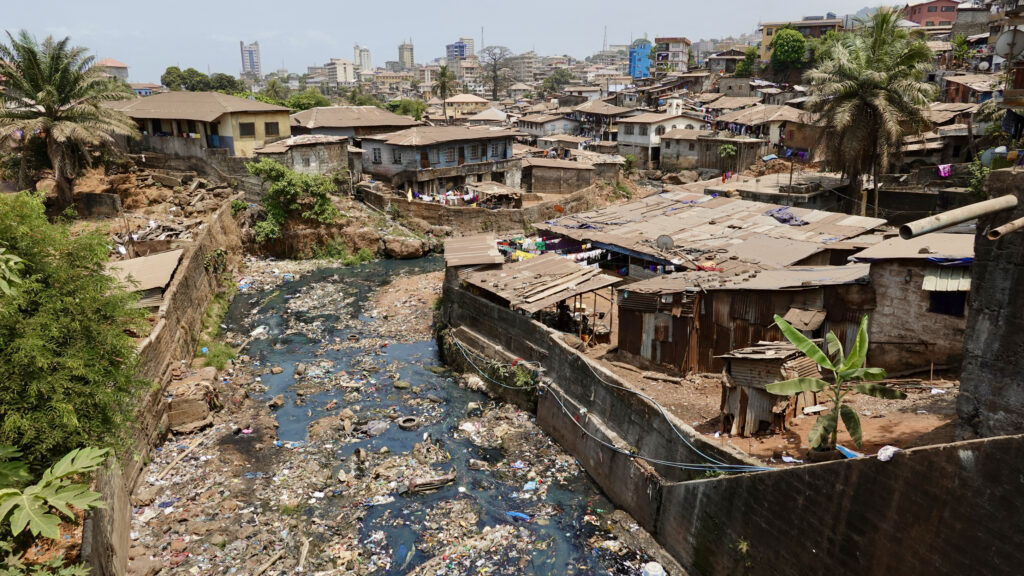
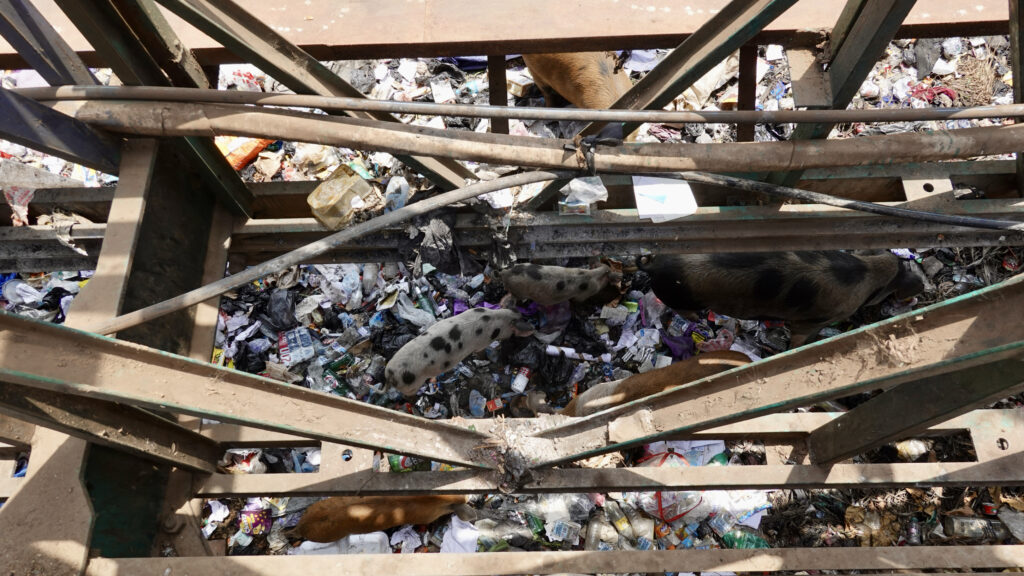
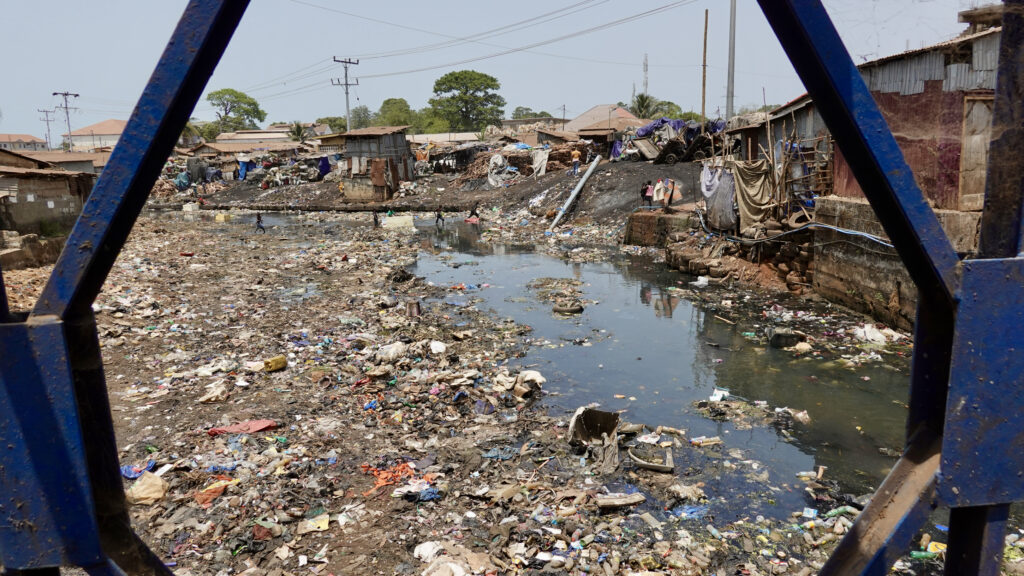
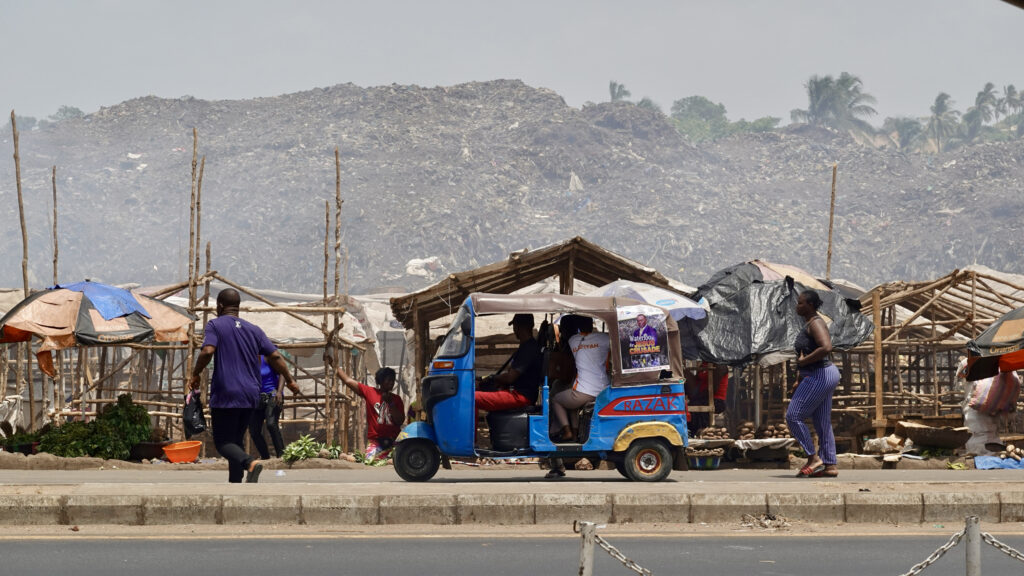
On the other hand, we are also impressed by how many people say 'Welcome to our country' and who are curious about what we do and where we are from. A situation that we experience many times is when a person asks us where we are from and where we are going - and then a tidal wave of information starts to pass on to those who pass by. It seems both like interest, tradition and as if there is social capital in being able to pass on news.
We experience the same life energy as we sail with the local ferry to Free Town from Tagrin. The ferry is crammed with people and goods. The atmosphere is good, and everything from local snacks to freshly made popcorn to the year's music hits 2024 on DVD was sold. Loud music blasts out of the speakers with small sound clips from the various songs, while the seller shouts and advertises the hits of the year. We are really impressed that he already knows the hits of the year for 2024 - but there were sales in the DVDs.
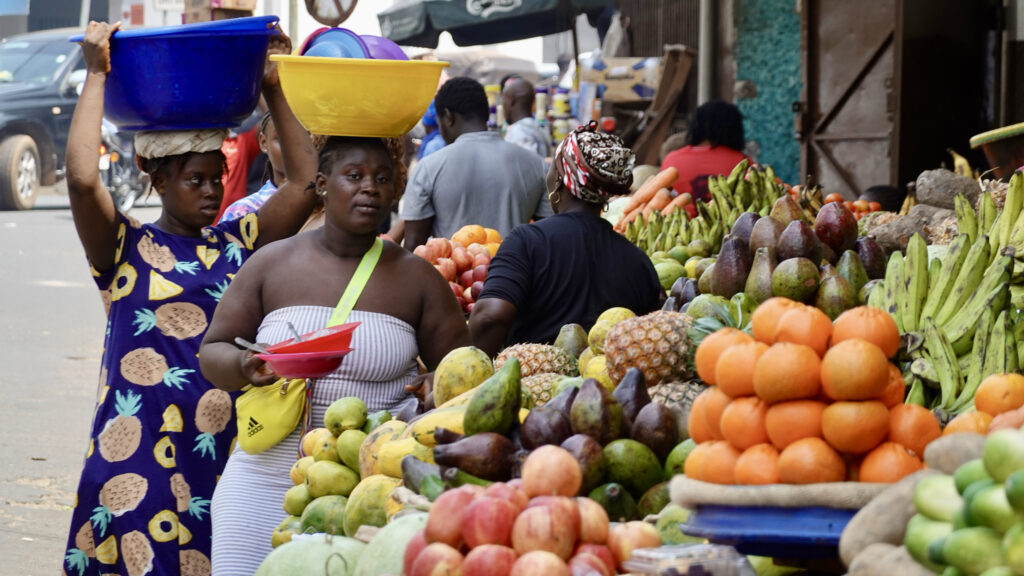
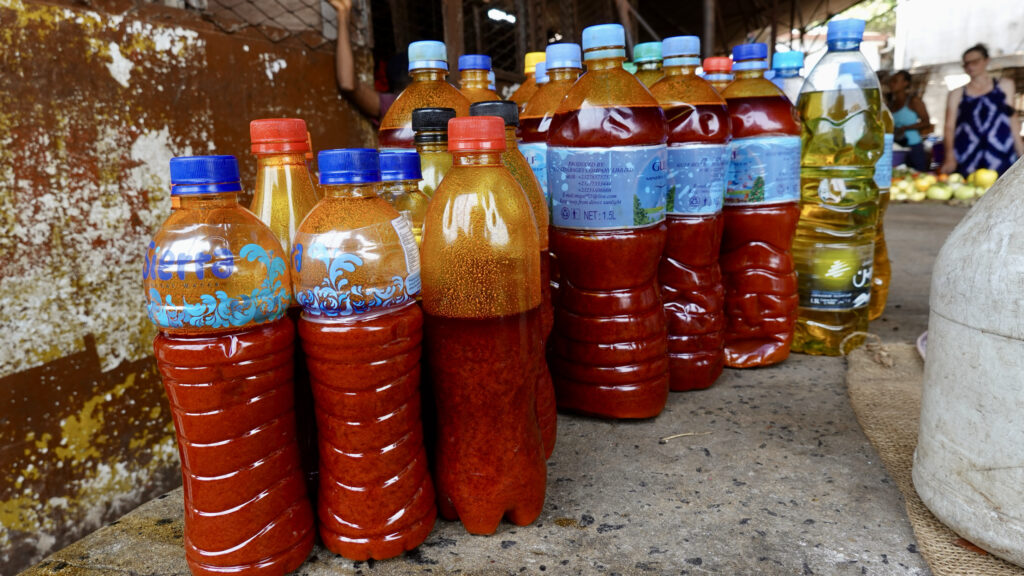
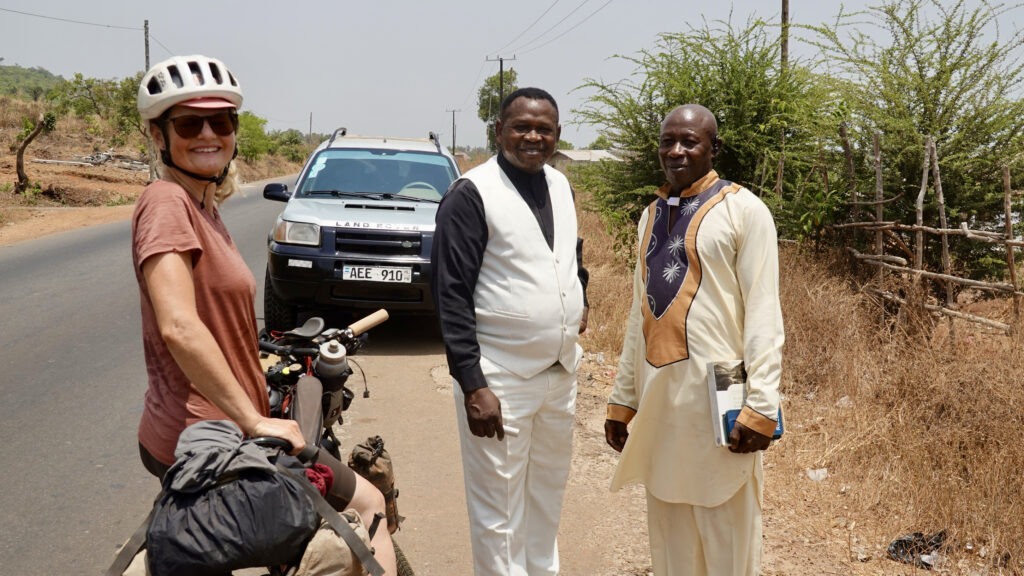
We live in Freetown for three days and every day we go down to the same woman who cooks in front of her house. It is a small street kitchen where you can get rice and the sauce of the day. There are small benches where we can sit and a table with rice and sauce. The food is cooked on two burners in front of her house. It's nice to see how the locals hang out and talk. Even if we stand out, we are quickly accepted and included in the conversations. The food is good, and it only costs approx. DKK 5 for a plate of food. For comparison, 500 gr. oatmeal approx. DKK 23 Everything imported is expensive.
On the last day, we come by on the bikes as we are on our way out of town, and it gives us a good laugh when we say that we have cycled from Denmark.
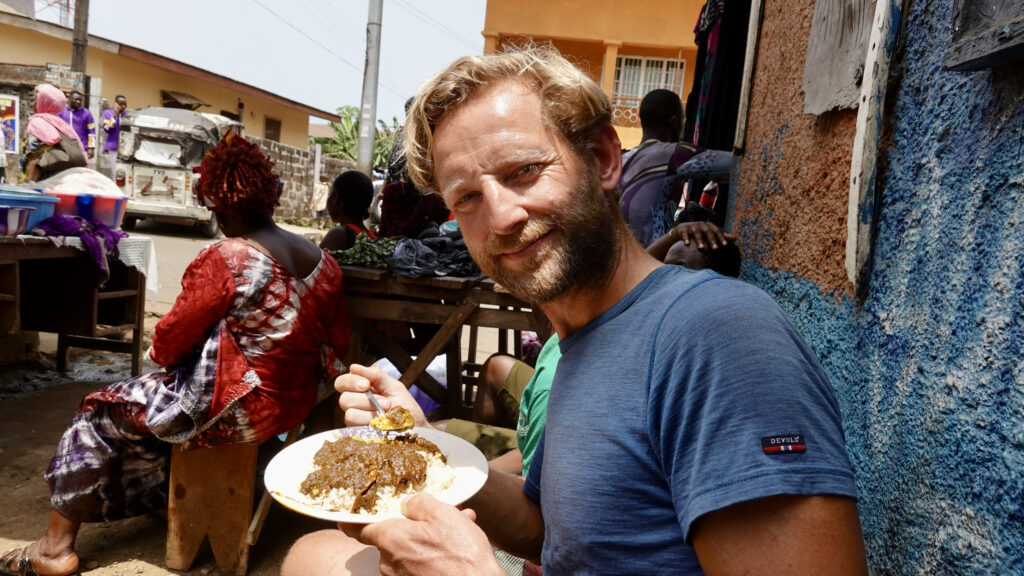
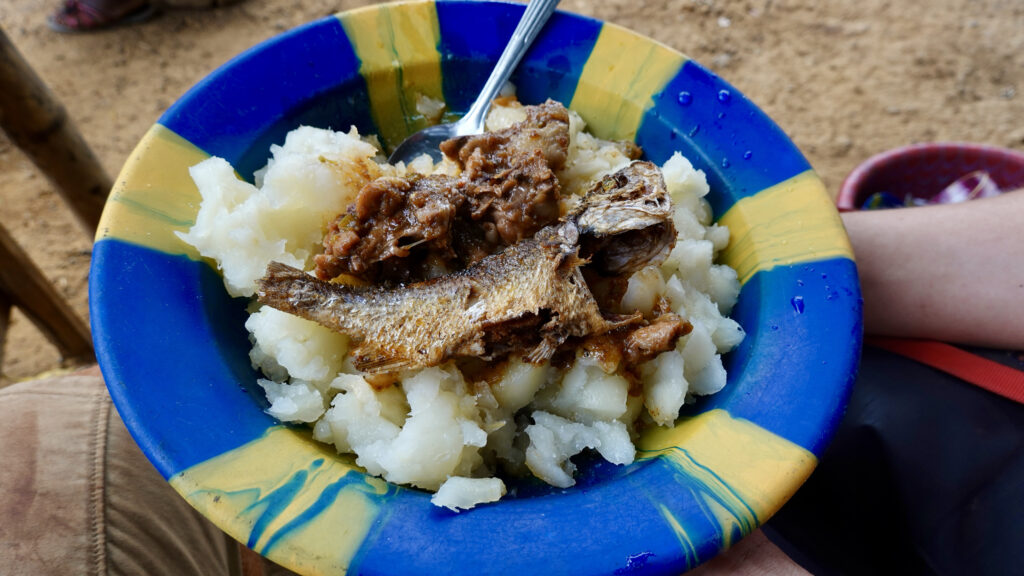
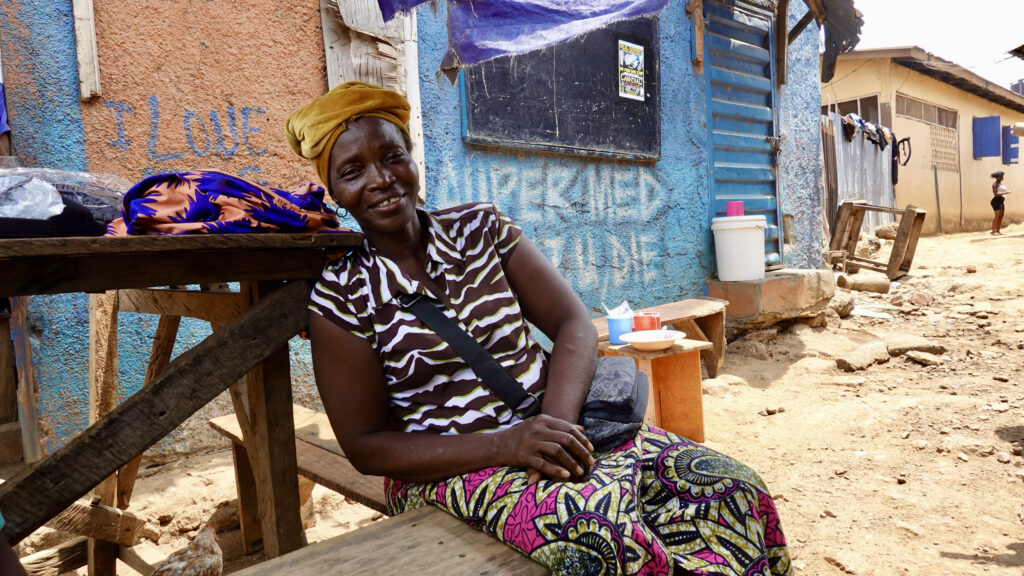
Muslims and Christians together
On the way to Liberia, we cycle along the disused railway route, which was in use from 1897 to 1974. Now the railway line is a dirt road, but there are still signs from when the railway was active.
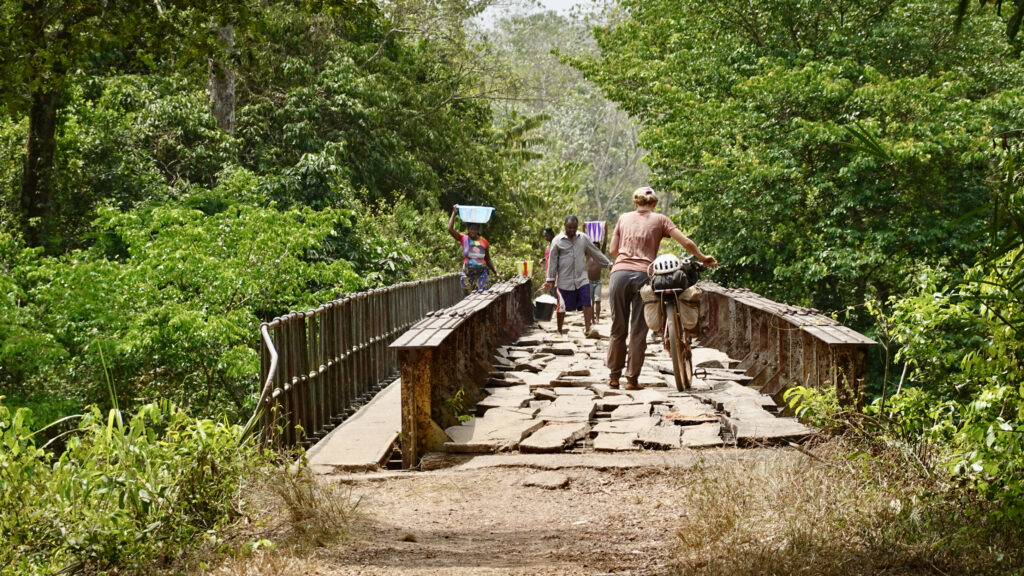
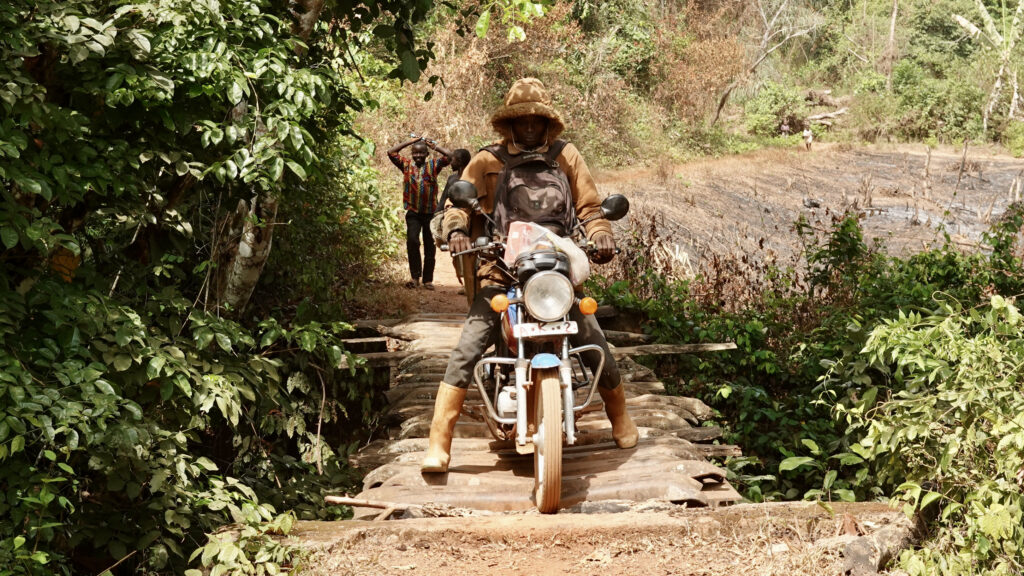
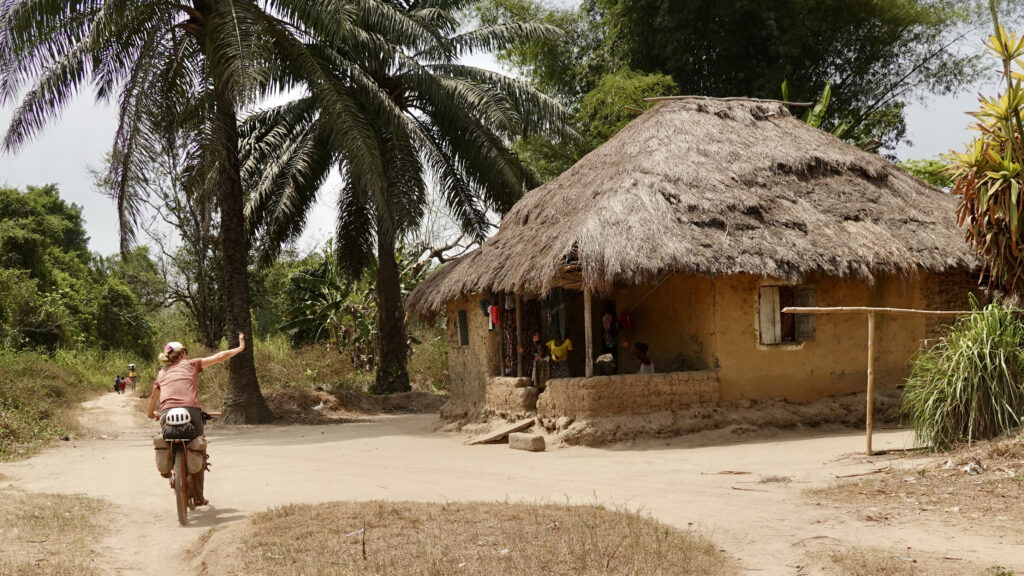
Along the way we sleep in the small villages and our hearts are filled with gratitude for the hospitality they show us.
It is fantastic to experience life in the small villages. In a small town, we are allowed to sleep in the town's common area, which is an open house with a roof over it.
The next morning before dawn, a gong gong sounds three times. It happens one more time. A little later we hear a group of men singing and a church service in progress. We lie right next to it in our small inner tent and are part of the day that starts in the city.
In the same village live Muslims who observe Ramadan. It is absolutely fantastic to experience how several religions live so closely together. Muhammad cheerfully teaches us that Waka Waka Waka means thank you in the local language, and he gives us cassava, bananas and papaya. We get water at the well, and the residents come by to say welcome and watch curiously when we set up the tent.
We're getting used to the fact that it's completely normal for people to sit down and just look at us without expecting a conversation. We're starting to think it's no longer transgressive, but it's very cozy. After all, it is us who are uncomfortable with the situation and not them. We also get a bucket of water. Cleanliness is important, and it's clear to see that they think we're a bit dirty after the day's cycling on the dirt roads.
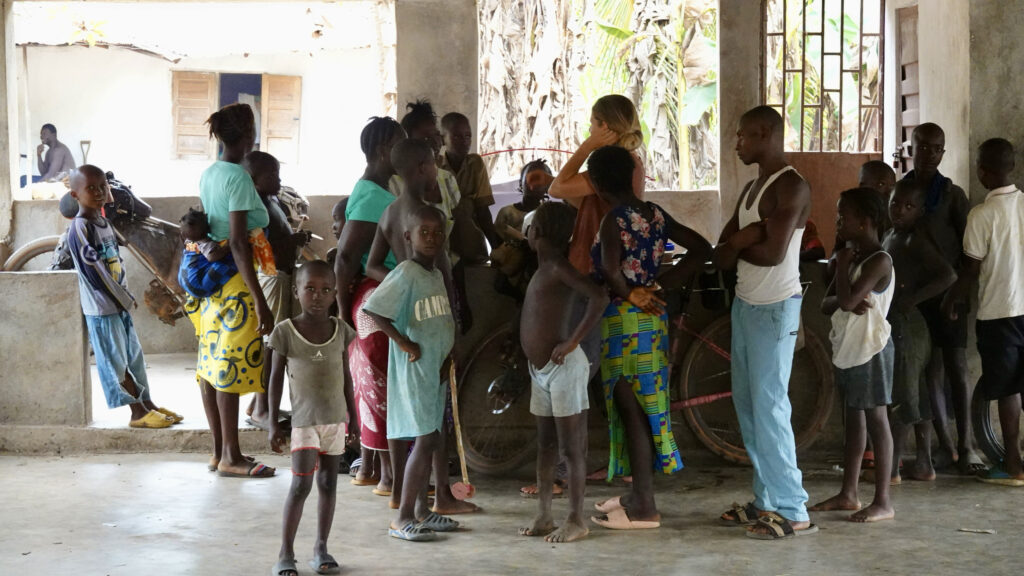
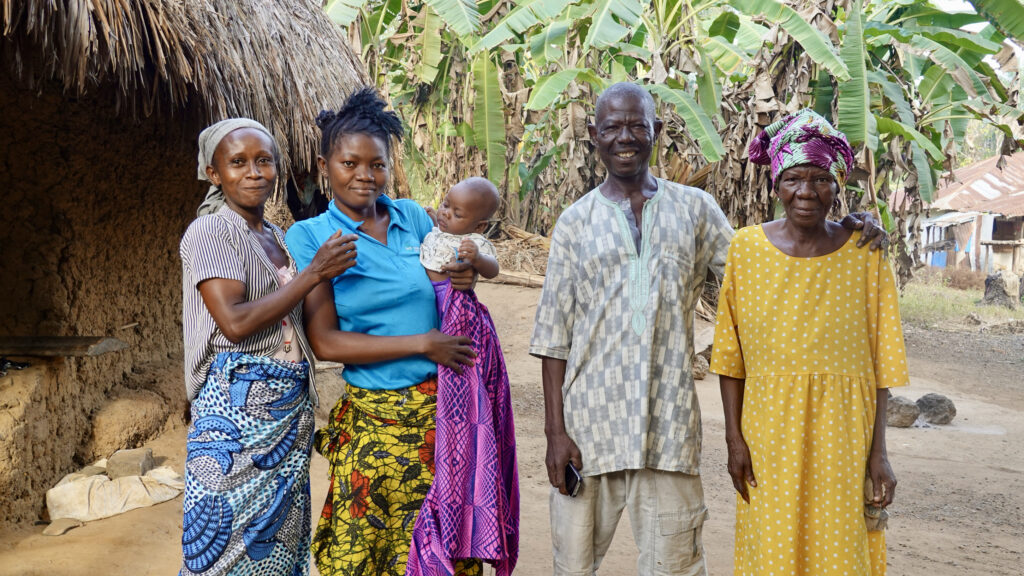
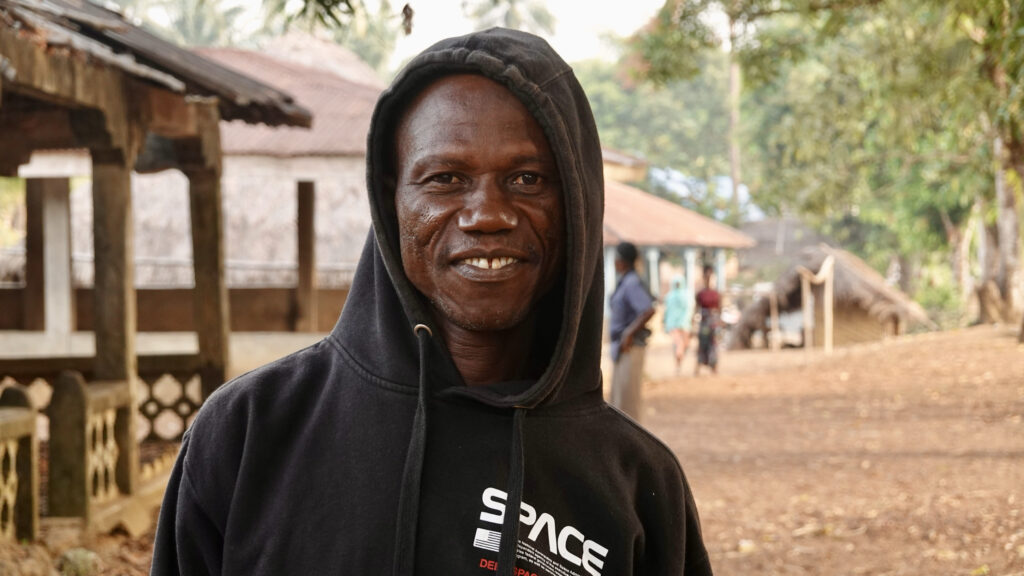
In another small village we ask for water, and it quickly turns into us having to sleep there. It is a woman, Saffie, who is the head of the family. A woman with bones in her nose and at the same time very charismatic.
The woman speaks good English and she asks if we want a shower. We say thank you very much, and it turns out that there is a toilet as we know it, and the possibility of a bath with buckets. Her brother has a high position in the army and he has built a bathroom and a house where the woman and the family live. We can feel that they have more than most, but at the same time she also talks about poverty. Most live with very little in the village. As darkness begins to fall, the villagers return home. They have been to the jungle, where they have their fields of cassava and yams, and where they harvest fruits from palm trees, which are used for palm oil.
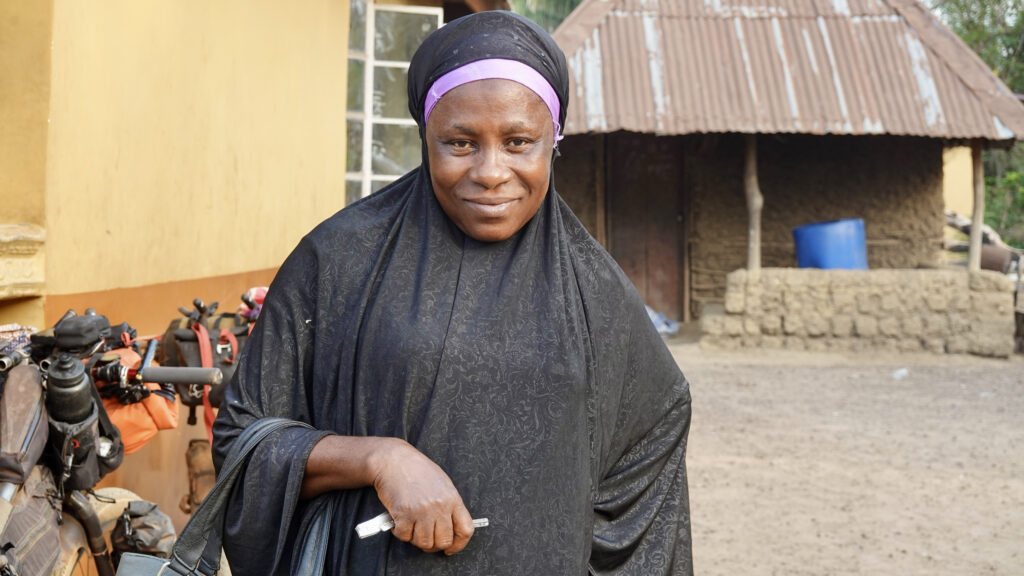
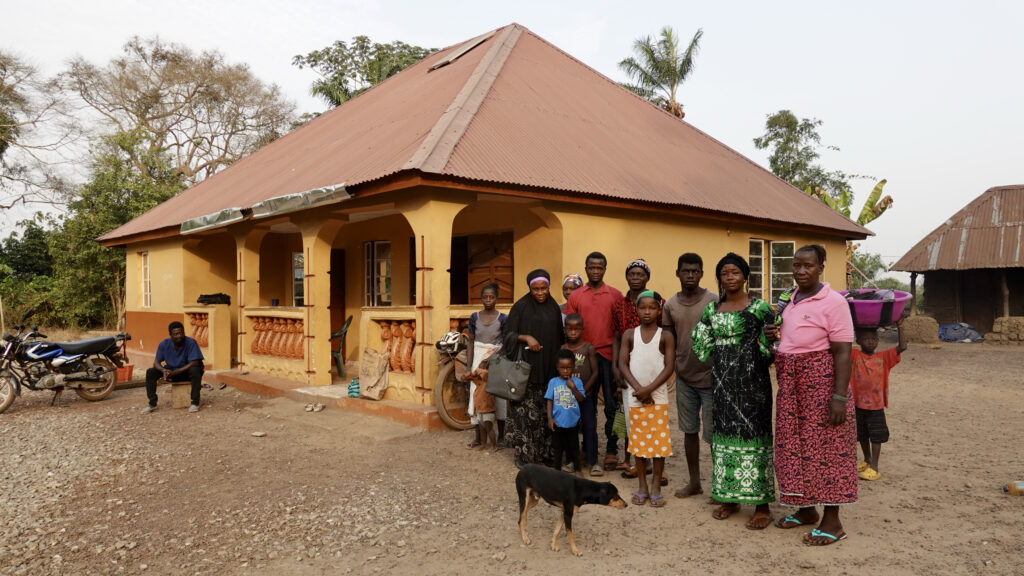
The woman proudly shows off her family with children and grandchildren. She also says that she lost her eldest son, aged 24, the month before. He studied at college in the town of Bo, but had died of drugs in Freetown. He was brought home and he is now buried on their land. It's heartbreaking to hear. Over the past six years, Sierra Leone has had major problems with the drug Kush, which is a synthetic substance that destroys especially the young.
We cook and talk with the family. Meanwhile, the tent is being moved around. First, the tent is set up outside the house. Then a carpet is added on which the tent can stand. Then the tent is set up on the veranda and finally the tent is moved inside a room which is the corridor to some of the family members' rooms. It is surely meant as an upgrade to be allowed to sleep inside, but the air is completely still in the room, the humidity is sky high, and we are as warm as a hamster in a woolen sock. Then we learned that we should never accept an upgrade again.
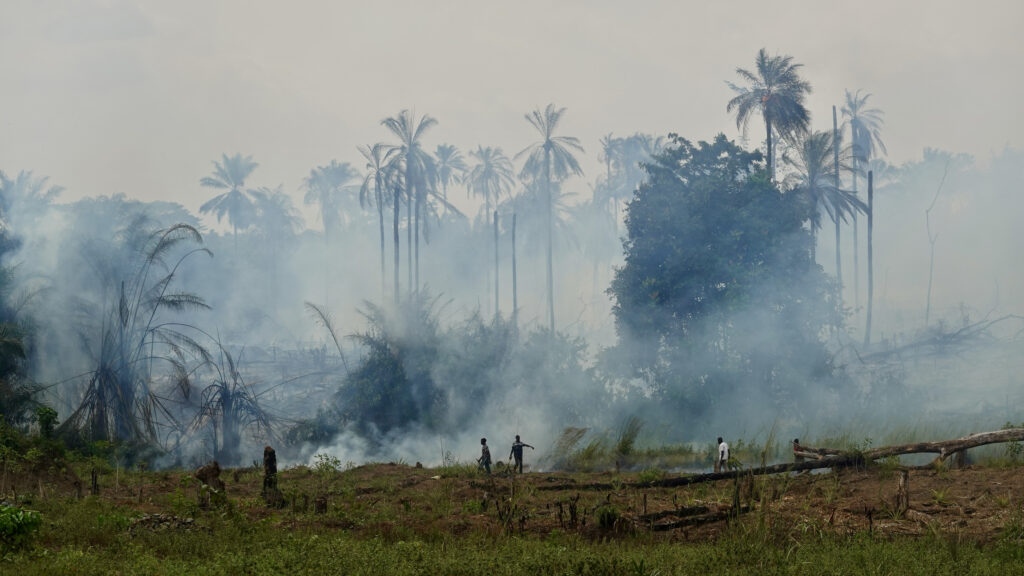
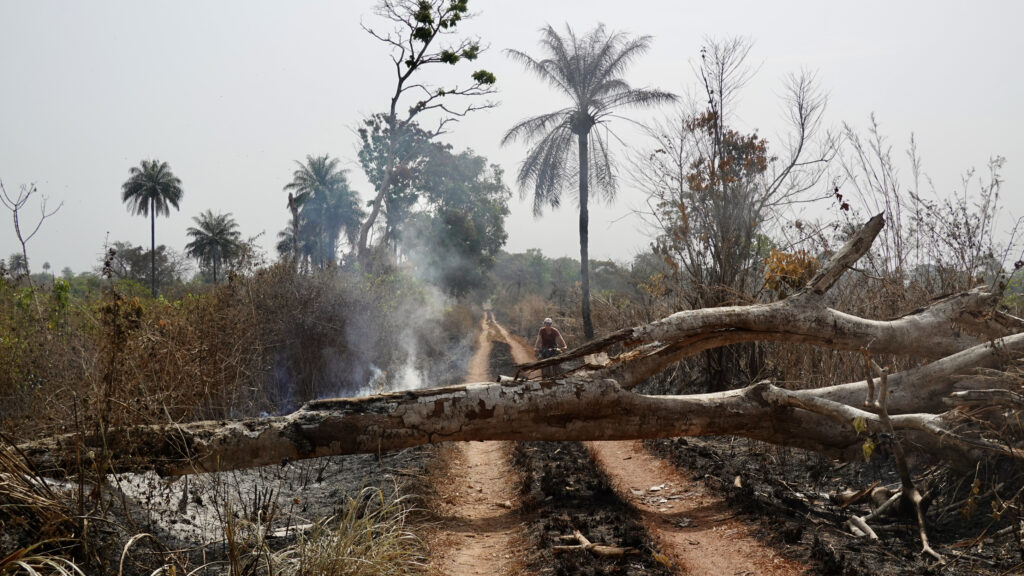
In another small town, the village chief, Alfa, lets us sleep on a concrete platform. 'The snakes can't get up there,' teases one of the villagers. A super nice guy who is making an extra stall out of wooden poles as they have a market the next day. People from small surrounding villages come here to sell vegetables and other goods.
Next to us is a factory, which is now dilapidated. The processed agricultural products. We didn't quite understand why it was closed, but they said the factory lacked funding. Along with the closure, the jobs for the young people also disappeared. During the evening several people came by and said hello. Others waved and shouted welcome as they rode past on motorbikes and disappeared down a small path to their homes. The priest also came by to say welcome.
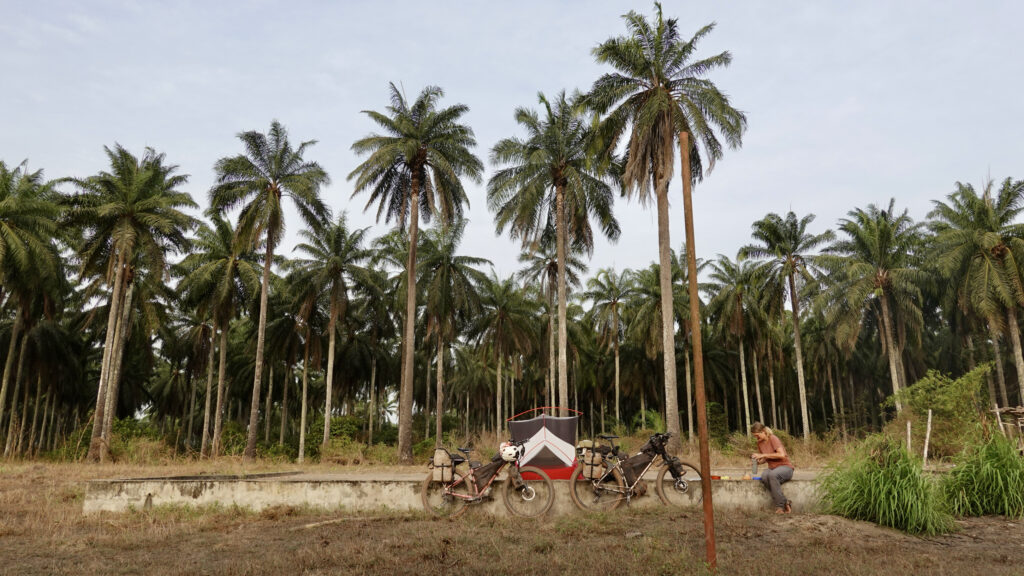
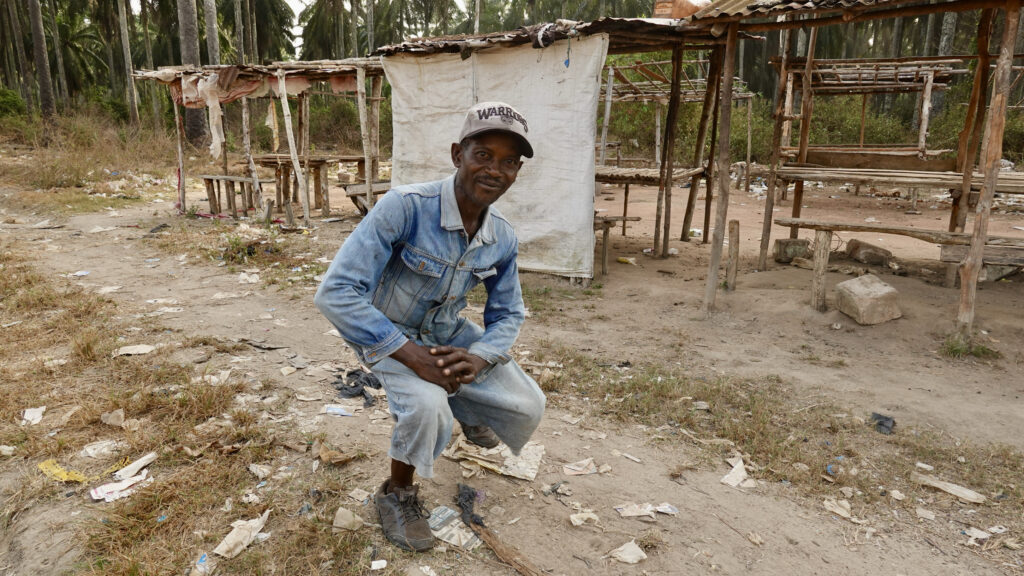
Alfa came back after dark with a coconut, which was really sweet naf him. The next morning before it was light he stopped by to check if we were ok and to say good morning to us as he had to leave early. We were completely warmed by the welcome they showed us. The man who was working on a new stall kept us company that evening and the next morning. Before we cycled off, he said he hoped we would tell good stories about Sierra Leone back home in our country. And we promised that. Sierra Leone as a country is challenged, but its people are some of the most amazing pieces of life we have met on our journey through West Africa.
